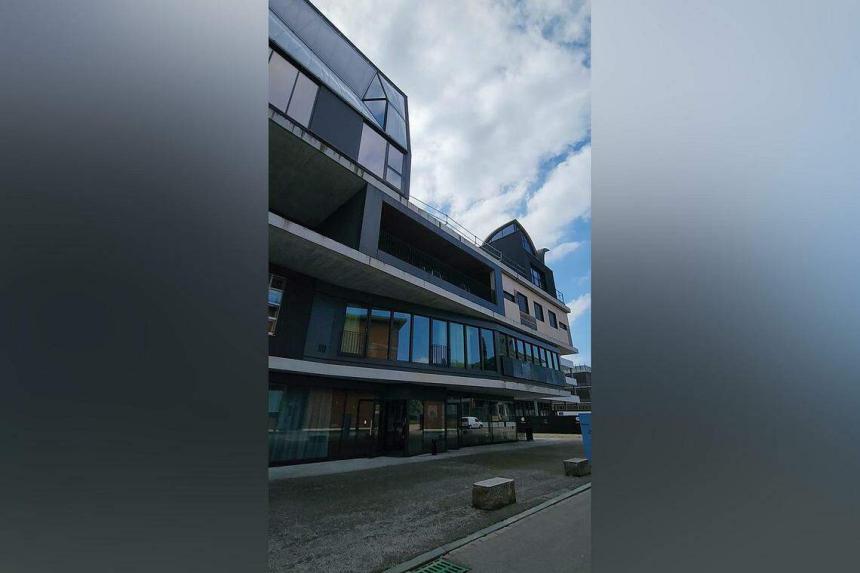
The Next Evolution in Sustainable Building Technologies research institute, near Zurich, which Minister for National Development Desmond Lee visited during his trip to Switzerland.
PHOTO: MINISTRY OF NATIONAL DEVELOPMENT
Jean Iau
ST GALLEN, Switzerland – Singapore is studying ways in which the Swiss bring together researchers, the construction industry and the private and public sector to innovate in the built environment.
Following his four-day trip to Switzerland, Minister for National Development Desmond Lee told The Sunday Times in an exclusive interview on Friday that his visit to the Next Evolution in Sustainable Building Technologies (Nest) research institute, near Zurich, had been very exciting.
The institute, part of the Swiss Federal Laboratories for Materials Science and Technology, tests technologies, materials and systems under real conditions using “modules”
These units “plug” into a building that has a central “spine” and platforms with heavy-loading capacity, with different modules piloting different materials and technologies such as various construction robotics or drone technology for buildings.
Mr Lee visited some of these modules, including a 3D-printed apartment. Another was made with mass-engineered timber, and others had partitions made from old books and recycled denim. People lived in some of these modules to test their liveability.
“These are very exciting things, and we spent a good amount of time talking to the people who run the facility,” he said.
Noting that his ministry has experimented with 3D-printed HDB rooms, he added: “We want to study whether more can be done, whether it’s in material science, robotics or new forms of construction, to continue to push the boundaries.”
Yet it was not necessarily the products or technologies the Swiss had come up with, but the way researchers collaborated with the construction industry, that piqued Mr Lee’s interest.
“We want to see how we can continually improve the way we strengthen collaboration in the construction sector with research institutions. It may not be innovation in the form of new technology or new intellectual property, but innovation in the way we do things – the mindset.
“To improve construction productivity, we may need to have some change in mindset, change in processes. In a way, collaborative contracting, what we’ve been pushing in Singapore, is one step in the right direction.”
He said this is in line with the revamped Industry Transformation Map 2025 for the built environment, which involves clustering construction, real estate facility management, security, landscaping and environmental services.
The built environment refers to man-made, urban environments where people live, work and interact.
The element linking these themes together is a “digital spine”, which is building information modelling and advanced construction technologies.
Mr Lee visited the research institute on Wednesday before attending the 52nd St Gallen Symposium, where he spoke in a plenary session on Thursday.
He said he appreciated the theme of the symposium, “A New Generational Contract”, as business leaders, activists and government officials from all over the world had open conversations with students not only in the sessions but also during the breaks.
“There’s that almost egalitarian approach where students and established individuals freely exchange knowledge and ask questions of each other,” he said of the student-run symposium.
He added that the business leaders and established individuals either benefited or would have benefited from being mentored or coached themselves. “I was young once too and benefited from people who were prepared to talk to me, teach me, guide me, coach me and correct me.”
Of the topics discussed at the symposium, which included climate change, geopolitics, and the use of artificial intelligence, Mr Lee said: “There’s a lot of hope, excitement and uncertainty, some pessimism. But all in, a sense that conversations like these need to intensify.”
Jobs in built environment should be redesigned to attract young talent, study finds
No comments:
Post a Comment